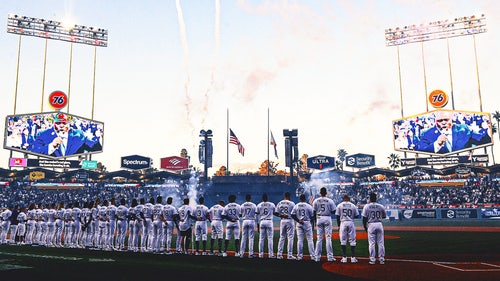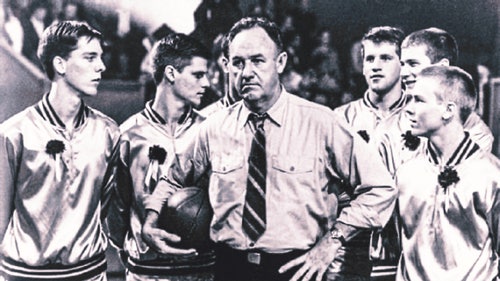
Yanks need to address Burnett problem
A.J. Burnett says he’s apologized to his Yankee teammates, made peace and moved on after that embarrassing episode in the clubhouse on Saturday — the one that wiped out the last vestige of trust the club ever had in the veteran right-hander.
Surely, everyone knows how Burnett ended up with lacerations on both hands. How he exploded in anger after another poor outing, slamming a plexiglass lineup-holder and then lying about it to the Yankees’ trainers.
Burnett initially said he’d fallen on the stairs leading to the clubhouse and scraped his hands trying to brace himself. Of all the bad decisions Burnett made, not taking immediate responsibility was the riskiest to his career in the Bronx. Until Burnett finally confessed to Joe Girardi after the game, GM Brian Cashman was unwittingly parroting Burnett’s story to the media.
If Burnett had stopped to think, he would’ve realized his lie would’ve immediately made its way to Cashman’s office. Like any executive, Cashman hates being embarrassed, and he has a particular problem with employees who are dishonest.
The short-term issue, however, is just as troubling to the Yankees. After a year-and-a-half, they still don’t know what to make of Burnett. They initially considered him laid-back, unflappable — cool, actually. Now Burnett has shown the traits of an immature 33-year-old, who’s both selfish and angry.
It’s a dangerous cocktail in a room where trust rules; it’s baseball’s most precious currency. It’s why the Yankees can compress a game into eight innings instead of nine, because they know Mariano Rivera can be trusted with those last three outs.
It’s the same way the Yankees feel about Andy Pettitte in the postseason. Some way, somehow, they know Pettitte’s pedigree will kick in and he’ll give them a chance to win.
But what about Burnett? The Yankees say they’ve forgiven him, but that’s only for public consumption. Privately, Cashman would love to trade the troubled hurler, but he knows that’s not realistic. Instead, the Bombers are stuck with his volatility, not to mention the $82.5 million contract, which hardly looks like a coup any more.
Burnett and his 4.99 ERA are a far cry from the star the Yankees thought they were getting two years ago, back when he had an arsenal to die for. The Yankees’ only request of Burnett was to stay off the disabled list, which he did throughout the 2009 season.
Still, there were little things the Yankees started to learn about Burnett that they’d never realized from afar: he was stubborn, just as hard-headed, in fact, as his catcher, Jorge Posada, which forced Girardi to pair him with Jose Molina during the postseason. Burnett also had trouble staying focused during opponents’ rallies, as if one bad break or big hit was enough to destroy him for the rest of the game.
No one knew Burnett’s frustration could be this edgy, this destructive, especially when it rolled over into 2010. This year Burnett’s control is almost non-existent, his velocity is down, the curveball not nearly as sharp as it used to be.
Not only has Burnett’s ERA soared to a career high, so has the number of wild pitches (12), opponents’ average (.277) and their contact ratio (83 percent). All reasons to believe Burnett is in crisis.
The tipping point was Saturday’s performance against the Rays, when Burnett allowed three runs in the first two innings, then was unable to retire a batter in the third. At that point he stormed into the clubhouse and attacked a set of double doors. The ensuing commotion was out in the open; even the Rays knew something was wrong as Burnett literally returned to the dugout with blood on his hands.
Wearing bandages after the game, Burnett told reporters he was embarrassed by the incident. “They have a right to wonder and be upset with me,” Burnett said of his teammates, and added, “I would agree with them,” if the Yankees finally lost patience.
Kevin Brown had similar problems in 2004, as members of the organization realized he was simply too tightly wound to play in New York. Despite his awesome talent, Brown found himself isolated from the Yankees — he was simply too weird to reach. It didn’t help Brown’s standing in the clubhouse, either, that he broke a hand punching a clubhouse wall that season. Still, Brown at least had the presence of mind to use his left hand.
Burnett is in danger of becoming a similar-type pariah, although there’s still time to re-make his image. He could start as soon as Friday night against the Royals. But all the evidence suggests Burnett needs a firm and authoritative response from the Yankees. Joe Girardi has to do better than to simply say, “some guys handle their frustration better than others.”
Girardi is obviously paid to make blemishes look less noticeable to the public, but it’s his reputation that’s on the line, too. Either Girardi holds his players to a higher standard or else his job description morphs from manager to enabler. It’ll be interesting to see which path he and Burnett choose in the next two months.










